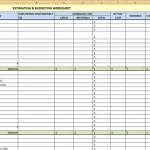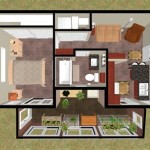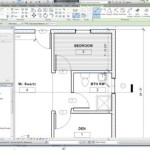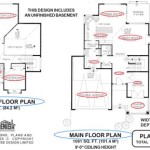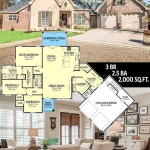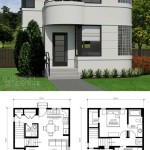Essential Aspects of Basic Floor Plan with Measurements
A basic floor plan is the foundation for any construction or renovation project. It provides a detailed overview of the layout, dimensions, and relationships between rooms. Measurements are a crucial aspect of a floor plan, as they determine the size and proportions of the spaces and the locations of walls, windows, and doors.
Scale
The scale of a floor plan defines the relationship between the actual dimensions of the space and the size of the drawing. It is important to choose an appropriate scale that allows for clarity and accuracy. Common scales include 1/4 inch = 1 foot, 1/8 inch = 1 foot, and 1/16 inch = 1 foot.
Dimensions
Accurately measuring the walls, ceilings, doors, and windows is essential for creating a floor plan. Measurements should be taken in feet and inches, and should include both the length and width of each element. Clear labeling of dimensions on the floor plan is crucial for understanding the size and shape of the space.
Room Layout
The floor plan should clearly show the layout of the rooms, including the shape, size, and relationship to each other. Wall thicknesses and partitions should be accurately represented, and the location of windows and doors should be indicated. The flow of traffic and the overall functionality of the space should be considered.
Legend
To enhance readability, a legend can be included on the floor plan to explain any symbols or abbreviations used. For example, windows can be represented by rectangles, doors by triangles, and walls by lines. The legend will help users interpret the floor plan and understand its details.
Furniture and Fixtures
Depending on the purpose of the floor plan, it may be beneficial to include the placement of furniture and fixtures. This can help with visualizing the space and making informed decisions about furniture arrangements and décor. However, it is important to distinguish between fixed elements (e.g., walls) and movable items (e.g., furniture) to avoid confusion.
Additional Features
In addition to the essential elements mentioned above, a basic floor plan may also include other features such as:
- Elevations or cross-sections
- Structural details
- Electrical and plumbing layouts
- Appliance and cabinetry dimensions
Accuracy and Clarity
Above all, a basic floor plan should be accurate and clear. Measurements must be precise, and the drawing should be easy to understand and interpret. A well-executed floor plan will serve as a valuable tool for planning, construction, and future reference.
Conclusion
Creating a basic floor plan with measurements is a fundamental aspect of any architectural or design project. By understanding the scale, dimensions, room layout, and other essential features, a floor plan allows for precise planning, efficient construction, and clear communication between architects, contractors, and clients. It is a valuable tool that lays the foundation for successful building projects.

12 Examples Of Floor Plans With Dimensions

Plans Simple Floor Measurements Jhmrad 611

Floor Plans With Dimensions Including Examples Cedreo

Small House Floor Plan With Dimensions Template

Easily Add Measurements To Your Floor Plans Roomsketcher
Overview Measurements On Floor Plans Roomsketcher Help Center

How To Read A Floor Plan And Design The Perfect Home For You

A Floorplan Of Single Family House All Dimensions In Meters Scientific Diagram

Floor Plan With Dimensions Guide To Drawings

How To Properly Read Floor Plans And What Details Look For
Related Posts

